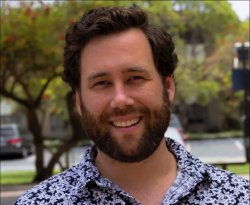
University Calendar
Technological Change in the Life Cycle Assessment of Rapidly Expanding Greenhouse Gas Mitigation Technologies

About Joe Bergesen
Joe Bergesen received his B.S. degree in physics from the University of California Santa Barbara, and his M.S. and Ph.D. degrees environmental science and management from the Bren School of Environmental Science and Management at UC Santa Barbara. As a postdoctoral fellow, he received a National Academies’ National Research Council Postdoctoral Fellowship to work at the U.S. Naval Research Laboratory. Since 2011, he has contributed to a series of reports for the United Nations Environment Programme’s International Resource Panel on the long-term and global environmental and resource implications of renewable energy and energy efficiency technologies. His research interests include hybrid life-cycle assessment, technological learning and renewable energy systems.
About The Seminar
Unprecedented deployment of a wide variety of greenhouse gas (GHG) mitigation technologies is needed to avoid the most catastrophic impacts of climate change over the coming decades. Many of these technologies, such as thin-film photovoltaic (PV) solar power and efficient light emitting diodes (LEDs) are still in the early stages of development and are just beginning to expand into the mainstream. Assessing the long-term environmental and natural resource risks, benefits and tradeoffs of these technologies using life cycle assessment (LCA) can be challenging due to their changing capabilities, costs, and resource requirements. Failing to account for likely technological changes in these rapidly-expanding technologies and their global supply chains could lead to inaccurate assessments of the long-term costs and potential environmental benefits of GHG mitigation.
Technology learning curves are frequently used to forecast the declining costs of energy technologies as their total production is increased. Traditional learning curves, however, do not distinguish the different direct and supply-chain innovations that lead to these cost reductions, or how those innovations will affect the life-cycle environmental impacts of a technology. I introduce a framework for integrating learning curves into the life cycle assessment of these technologies by separating the effects of learning in the supply-chain that influence costs from those that also influence environmental impacts. I apply this framework to a case study on CdTe PV to show how technology learning in the supply chain can contribute to observed cost reductions for GHG mitigation technologies.